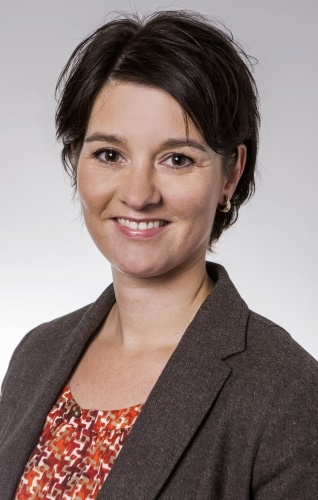Men who practice sex with other men have a great opportunity to get tested for HIV and Hepatitis C in the next few weeks when quick and easy tests will become available in Iceland for the very first time. Ingibjörg Rósa and Lilja Katrín Gunnarsdóttir report.

“These tests, from OraSure, are very easy to use but need to be carried out by professionals. It only takes a quick mouth swab and the results are ready 20 minutes later,” says nurse Ragnheiður Hulda Friðriksdóttir who is a project manager of a Hepatitis C treatment campaign that aims to diagnose all Hep C infected individuals in Iceland in order to treat them.
“It is estimated that between 800 and 1000 people are infected of Hepatitis C in Iceland and we believe that 80 percent of them have already been diagnosed so we want to find the rest of them so we can help them. The ultimate goal is of course to eliminate Hepatitis C from Iceland but that’s perhaps too optimistic a dream.”
Ragnheiður explains that both HIV and Hepatitis C are transmitted in the same way, by unclean syringe needles or sexual contact, especially between two men, so the tests will be used to skim for both viruses at the same time.
She says that the tests have over 90 percent accuracy and obviously the diagnosis will always need to be confirmed with a blood test. “That’s why health authorities have made it a condition that medical professionals carry out the tests, because those who receive positive results will receive further counselling and start a treatment immediately. Thankfully, Hepatitis can now be treated and HIV can be contained with medication so it’s very important to find those infected as early as possible.”
“These tests, from OraSure, are very easy to use but need to be carried out by professionals. It only takes a quick mouth swab and the results are ready 20 minutes later.”
Icelandic health authorities have given permission for these sorts of tests to be used for the very first time, because of the campaign that Ragnheiður heads. “We have funding and a plan for the next 2-3 years to try and find all Hepatitis C infected individuals in Iceland and give them treatment so this is a great opportunity for us and those at risk to react.”
In order to reach males who have sexual relations with other men, which is one of the groups at risk of retracting both viruses, Ragnheiður and her team will set up station for a few days at the headquarters of Samtökin ’78 and HIV Iceland and welcome anyone who wants to get tested. “Regular tests are always available to anyone at the clinics, free of charge, but now we’ll make them more accessible and fast results, not the long waiting time that many find difficult. So I urge people to take advantage of this; we have a great opportunity to make the most of these tests in the next 2-3 years, which might help us gain control over the spreading of Hepatitis C in Iceland.”
Ragnheiður will be one of the speakers at an open symposium in Silfurberg in Harpa held on Wednesday evening as part of the annual Medical Week held by the Icelandic Medical Society. The symposium is called “Is C hiding in your home?” and is not the least aimed at informing the public more about the threat, the signs and the treatment. Amongst other speakers are writer Einar Már Guðmundsson and Kristmundur Sigurðsson who’s undergone treatment for Hep C.
“The symposium is open to the public and I encourage people who are curious to attend, we have to make the most of this opportunity we have to beat this threat,” Ragnheiður concludes.
HIV Iceland has high hopes for new tests
Iceland is experiencing a record year in HIV and AIDS cases with 24 people diagnosed so far, 6 with AIDS and 19 with HIV, compared to 2015 when 13 people were diagnosed and 10 cases in 2014. So many people haven‘t been diagnosed with AIDS here since 1994, or in 22 years. The managing director of HIV Iceland hopes that rapid HIV tests will help prevent this development.

“There are complex reasons for this increase in diagnosed HIV and Aids cases. This year the group of people diagnosed with HIV in Iceland differs from the ones in previous years. It’s a mix of men and women of all ages and in some cases they’ve been infected for a long time. Which means that they’ve been going from department to department within the health care system for years without being tested for the disease.
And one of the reasons for that is that both the pubclic and health care professionals don’t necessarily link bad health with HIV. It‘s still more commonly connected with homosexuality,” says Einar Þór Jónsson, the managing director of HIV Iceland, an organization that aims to educate the public about HIV and AIDS and to support those infected and their families.
“So if a gay man seeks health care because he is not feeling well it is more likely that he would get tested for HIV,” he goes on and points out that of course the truth is that everybody can get infected by HIV. “HIV is being transmitted everywhere. And we know it‘s not good to have HIV for a long time and not know about it because it goes untreated and people can infect others.”
“…with a rapid test, you just show up at a test facility and get your gum swabbed. It‘s going to make the process less of a taboo and not a source of embarrassment.”
Einar believes that the new rapid HIV and Hepatitis C tests will change things for the better. “I think people currently find it insurmountable to contact a hospital, book an appointment, show up, get stung by a needle to get tested, wait for a whole day for the results and get asked various questions about sexual orientation and sexual behavior by a hospital employee in a white robe. I think it’s a hindrance to many. But with a rapid test, you just show up at a test facility and get your gum swabbed. It‘s going to make the process less of a taboo and not a source of embarrassment. And as a result more people will get tested.”


